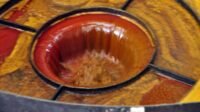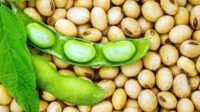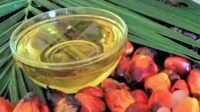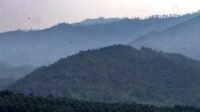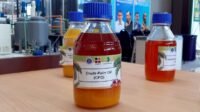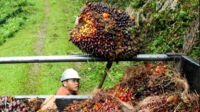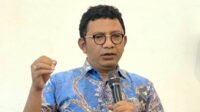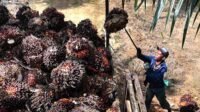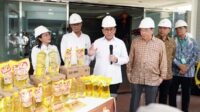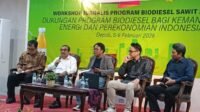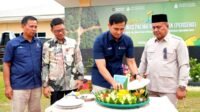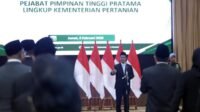PALMOILMAGAZINE, JAKARTA – The palm oil industry in Indonesia confronts a new challenge concerning the operation of palm oil mills (POM) that do not possess or cultivate plantations, or those that acquire seeds externally. The General Directorate of Plantations under the Ministry of Agriculture has issued circulars to governors, regents, and mayors urging them to oversee POMs within their jurisdictions due to the lack of supervision and potential for unregulated development.
POMs without plantations often operate alongside those in partnership with plasma or independent smallholders. Their presence poses concerns regarding the procurement of fresh fruit bunches (FFB) from smallholders without adhering to the required terms and conditions, such as sourcing a minimum portion of materials from the mill’s own plantations as mandated by Indonesian Sustainable Palm Oil (ISPO) and European Union Deforestation Regulation (EUDR) standards.
Posma Sinurat, Chairman of the POM Association within the Indonesian Professional Practitioners Association of Plantation (P3PI), highlighted another issue faced by the palm oil industry: the presence of POMs that acquire seeds externally. These mills operate adjacent to existing POMs and may transport seeds, potentially affecting the quality of crude palm oil (CPO) and the prices of FFB for smallholders.
Also Read:
- Prabowo-Gibran Officially Won The Election: Palm Oil Association Hoped Downstream Would be Escalating
- Advocating for Realigning Land and Natural Resource Management
- Bank of East Asia Grants Wilmar International a $100 Million Green Loan
- Minister Airlangga Hartarto: Advancing the Palm Oil Governance Roadmap and Doubling SRP to IDR 60 million/Ha
- Red Palm Cooking Oil Mill Inauguration: Economic and Nutritional Advancement
“This produces CPO with highly as acid substance which is taken as waste, not as the main product. This would reduce the quality of CPO in a whole and would raise issue for the future,” Sinurat said.
Coordinator of Palm Oil Industry from General Directorate of Plantation and Forest Product Industry, Ministry of Industry, Lila Harsya Bachtiar told that Ministry of Industry is preparing new regulation to change CPO standards to be food grade. The new regulation would be about CPO quality standards which are closer. Mixing other materials, such as, POME (palm oil mill effluent) or the other residue would not be permitted.
To escalate palm oil industrial efficiency, Ministry of Industry would do the best to escalate tingkat komponen dalam negeri (TKDN) so that the industries would not depend on machine imports and tools from abroad.
Through the programs, such as, TPOMI (technology palm oil mill) that would be implementing in Bandung on 18 – 19 July, palm oil industries in Indonesia would adopt new technologies which are more efficient and environmental.
To face such challenges, POM without plantations, POM that purchased the seeds and dependence on machine imports, palm oil industries in Indonesia should keep innovating and collaborating with the governments, academy, private sectors to create more efficient and sustainable ecosystem. (T2)


